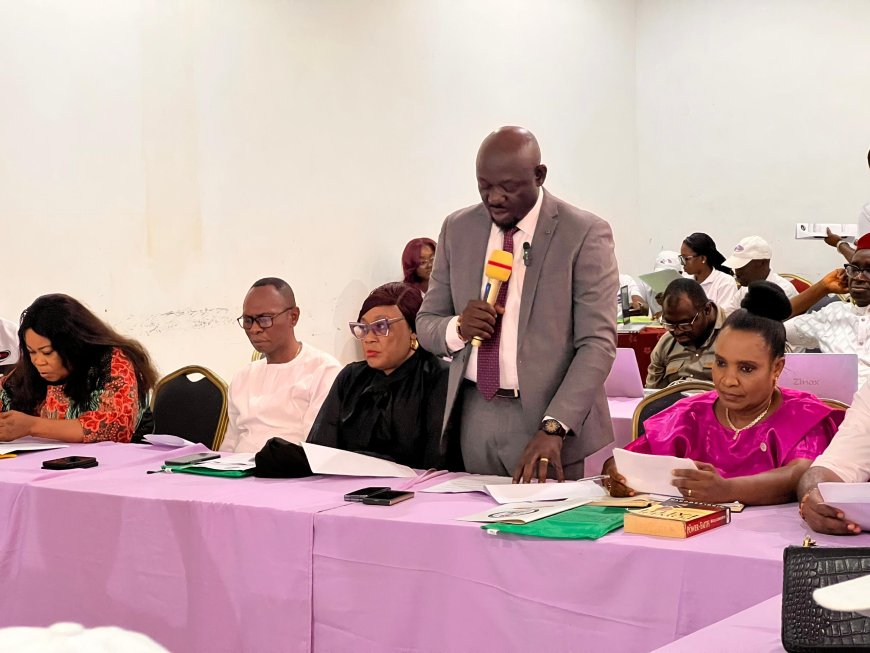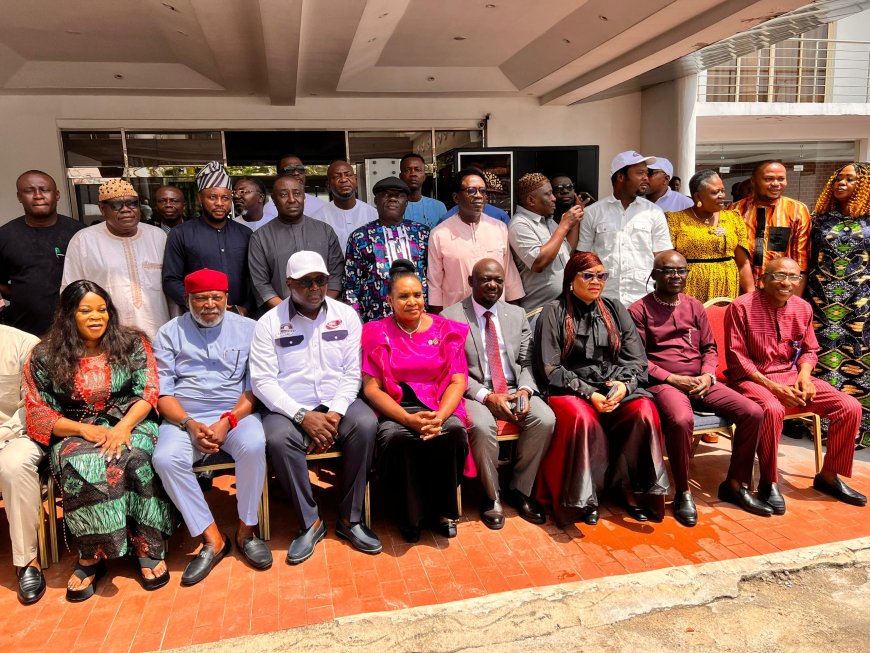FEATURES: Cross River Rises as Model for State-Led Health Insurance Reform

By Ebi Collins
In a quiet but powerful corner of Nigeria’s healthcare reform landscape, a transformation is underway; one that dares to put people before politics. At the heart of this shift is the Cross River State Health Insurance Scheme (CRSHIS), administered by the Cross River State Health Insurance Agency (CRSHIA), a growing force committed to making affordable, quality healthcare a reality for all Cross Riverians.
Recently, the momentum grew even stronger as CRSHIA hosted a two-day capacity-building workshop themed “Daring to Transform: Building a Health System that Puts People Before Politics.” The event was more than a meeting. It was a call to action. Held for the agency’s Governing Board and Management Staff, it drew health policy leaders, legislators, development partners, and insurance experts together with one goal: transforming how healthcare is accessed, funded, and experienced in Cross River State.
Delivering a keynote on behalf of the Speaker of the Cross River State House of Assembly, Rt. Hon. Hilary Bisong, Chairman of the House Committee on Health, declared, “Healthcare is a fundamental right, not a privilege.” His words carried the weight of intent. Drawing inspiration from global success stories such as Rwanda, Ghana, Indonesia, and Taiwan, Bisong challenged Cross River to seize this moment. He emphasized six key pillars for transformation, including community ownership, fair and scalable financing, digital transformation, transparent governance, professional development, and strong performance monitoring. He also reaffirmed the Assembly’s commitment to legislative reforms that will protect CRSHIA from political interference, enabling it to function as a citizen-focused and data-driven institution.
Health Commissioner Dr. Henry Egbe Ayuk echoed that commitment, describing the insurance scheme as a “central pillar” of the Bassey Otu administration’s health agenda. “The people must feel the impact of government in their most vulnerable moments; and healthcare is one of them,” he stated.
Dr. Ayuk pledged continued support to make CRSHIA a model for other states, and commended the Governor’s focus on system strengthening, staff development, and service accessibility.
Established in 2016 under Law No. 10, CRSHIA’s mandate is clear: to protect families from the financial hardship of healthcare and improve access to affordable services. With a system that pools resources from multiple funding sources, including premium contributions, payroll deductions, the Basic Healthcare Provision Fund (BHCPF), and philanthropic donations, the agency has already achieved several key milestones. These include the formal enrolment of civil servants and informal sector populations, operationalization of BHCPF at 196 PHCs and 10 secondary health facilities, public-private partnerships to expand service delivery, and special interventions such as #JariCare, #OdenEwaFoundation, and #MmadiahaCare, which are targeting vulnerable groups. In addition, there are ongoing staff and service provider training programmes to ensure quality assurance.
Chief Godwin Iyala, Director General of CRSHIA, highlighted the Governor’s support and positioned the agency as “a rising hub for innovation.” He encouraged board and management staff to use the workshop as a turning point to elevate service standards and operational efficiency. Mrs. Comfort Ekanem, Chair of the CRSHIA Governing Board, offered a powerful reminder that their success would not be measured by attendance at meetings but by how many people, especially those in the informal sector, actually benefit from the scheme. The informal sector, often referred to as the “missing middle” in universal health coverage, represents a tough but crucial demographic to reach. Success, as discussed during the workshop, lies in building trust, creating flexible payment models, and enforcing participation through state-backed policy instruments.

Cross-state collaboration was also a major theme. Hon. Barr. Elizabeth Uki Ogbaga, Chair of the Ebonyi State Health Insurance Agency, led a delegation to observe and exchange best practices. She emphasized the need for regional cooperation to tackle common health challenges, especially maternal and child mortality. A goodwill message from the State Planning Commission, delivered by Dr. David Ushie, revealed exciting plans, including a new ICT-based monitoring system and a customer feedback platform that will track care quality across providers — innovations that are expected to increase accountability and patient satisfaction.
Barr. Enakirerhi, speaking on behalf of the State Primary Health Care Development Agency, stressed the importance of preventing tragic outcomes linked to financial barriers. “Functional health insurance can mean the difference between life and death for poor families,” she said.
Veteran health leader Chief Peter Ojie provided a reflective close, urging participants to see themselves as stewards of reform. “Health insurance is not a fix-all,” he cautioned, “but when rooted in transparency and trust, it becomes a powerful force for dignity.”
At its core, the Cross River State Health Insurance Scheme is about people — the market woman who can now afford safe childbirth, the farmer receiving early diagnosis, the teacher getting treatment without selling a prized asset. Health, after all, is the soul of development. And in Cross River, the journey to universal health coverage is not just policy — it’s personal, principled, and powerfully in motion.
As CRSHIA’s creed affirms, “We are poised, energized, willing, and committed — with all our hearts — to enthrone a robust, vibrant, and innovative health financing landscape that will be a pride to the people of Cross River State.” The time to act is now. And Cross River is daring, not just to reform, but to lead.












































